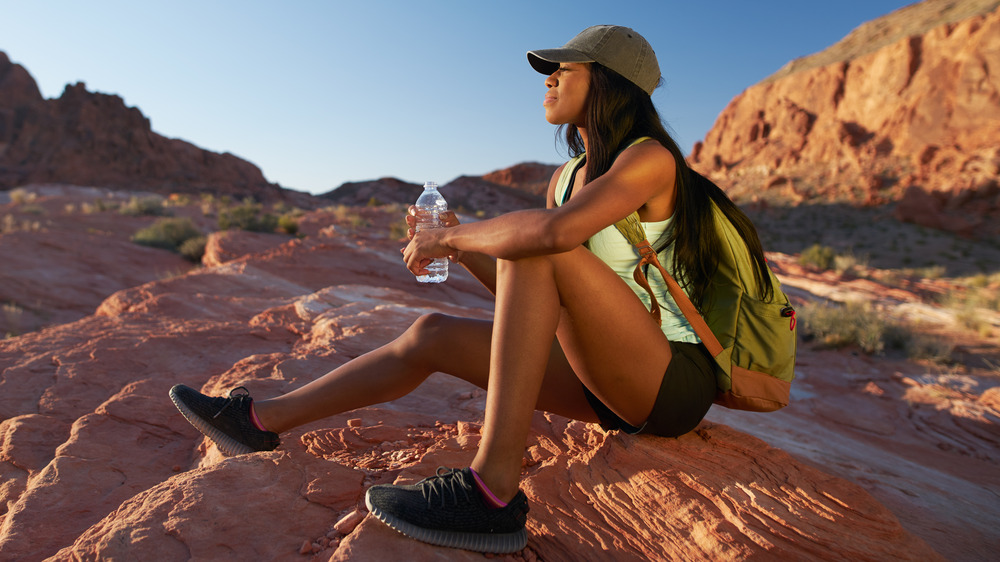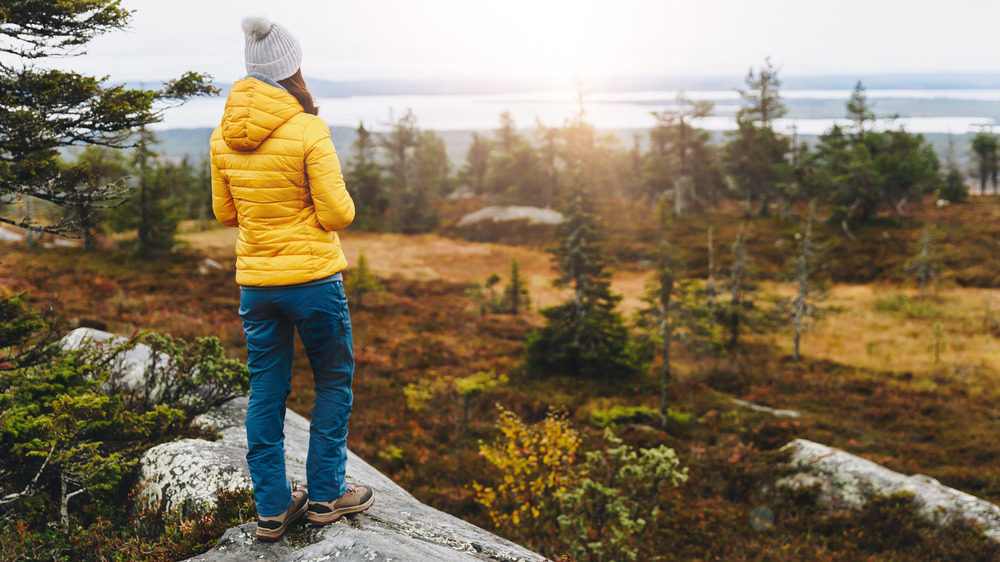Here's How To Be Safer While Hiking Alone
Getting out for a walk in nature can be one of the simplest joys in life, but heading out for a hike alone can sometimes be anxiety-inducing. After all, the Great Outdoors can also contain the Great Unknown, right? While many solo hikers encounter only fresh air and stunning views, it's important to carefully prepare in order to keep yourself safe while out on the trail. That way, you can relax and enjoy your trek and come back ready for the next one.
The main key to staying safer while hiking alone is preparation, and that includes choosing your trail. Bearfoot Theory tells readers to pick a well-traveled trail that's "below your pay grade" for a solo hike, especially if it's your first time doing so alone. It's probably best not to head out alone on your first-ever hike, so make sure you have a good sense of your own capabilities before choosing a path for a solo trek.
Once you pick the perfect trail, educate yourself on what to expect. Reserve America suggests checking the weather before you go, which may seem obvious but is easy to forget. It's also a good idea to make sure you know about any wildlife you might encounter, as well as flora or fauna. Bearfoot Theory notes that solo hikers can sometimes startle bears if they are too quiet, so it's important to know whether or not you're headed into bear country and to proceed accordingly.
Hiking alone is safer when you're prepared
With your trail picked out and the research done (you can identify poison ivy, oak, and sumac, right?), it's time to pack your bag. A small first aid kit, sunscreen, and bug spray are great, but having enough water is non-negotiable. American Hiking Society notes that dehydration is a preventable danger for hikers. It's best to drink lots of water slowly over your hike, and adding electrolytes via a salty snack can help your body absorb the water. When packing, you may want to leave your headphones behind. A podcast or your favorite music can be a tempting addition to a gorgeous hike, but it's important to be aware of your surroundings, especially when hiking alone (per Trail and Summit).
Before you head out, it's a good precaution to let someone know where you're going and when you expect to be back. For close-to-home hikes within cell phone range, this may feel silly (still smart though!), but for more adventurous, even multi-day hikes, it can be absolutely crucial (via Reserve America). For less accessible terrain, many solo hikers choose to carry a personal locator beacon or a tracker with SOS capability.
It may seem like lots of preparation, but it's all worth it. As hiker Erin Saver told Backpacker, "If you're always worried about the unknown, you would never experience the greatness out there. If you go out prepared and you know where you're going, you've done everything that you can."

